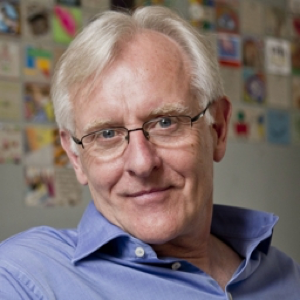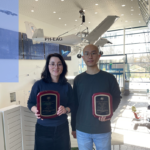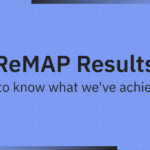European research lifts aviation maintenance up into the new era of digitization
With a major study of several European universities and industries (ReMAP) with TU Delft as project leader, a step has been taken in the modernization of aircraft maintenance using Artificial Intelligence. During a six-month test period at KLM, using KLM’s real-time operational data, it was proven that AI models can be used to make health predictions of aircraft systems, and plan the maintenance process accordingly. Project leader Bruno Santos (TU Delft): “We have succeeded in modeling the complete maintenance process of various aircraft fleets. In the future, this will make it possible to transform current aircraft maintenance based on fixed time intervals (and maintenance due to defects) to continuous health monitoring of systems. Systems are then replaced exactly when necessary, which prevents waste. In addition, the team has modeled the highly complex maintenance planning process that is currently largely done by hand. This takes into account changes and disturbances, which is a better approximation in practice compared to existing static models. This allows maintenance to be planned further in advance.”
In Europe alone, the potential savings on aircraft maintenance can amount to 700 million euros per year as estimated by The Advisory Council for Aviation Research and Innovation in Europe (ACARE). This European Union’s Horizon 2020-funded project, ReMAP, started in 2018. The results will be presented on the 23rd of May 2022 in a workshop organised at the TU Delft. This workshop will be public and free for all interested stakeholders.
Paul Chün, Vice President Technology Hub KLM Engineering & Maintenance:
“We are happy with the results from ReMAP demonstration at KLM E&M. They show that condition-based maintenance has the potential to increase the up-time of high value assets and transform unscheduled maintenance into scheduled maintenance. Furthermore, with this adaptive health monitoring and maintenance scheduling concept, we can consider replacing the manual scheduling approach, typically limited to the next couple of days, by an automatic scheduling process that can consider several months in advance. This additional time is crucial for maintenance companies to identify problematic tasks upfront and allow airlines to make a longer-term maintenance strategy. The benefit for travellers is clear: less unscheduled maintenance results in less delay and cancelation of flights.”
Predictive maintenance is maturing to be accepted in the restricted and regulated domain of aviation
Santos: “The concept of using health predictions of aviation systems in the maintenance process is not new, but there are only a few examples currently implemented in the commercial aviation industry. There is simply too little knowledge and experience to apply the entire condition-based maintenance (CBM) concept. After all, the full potential of CBM is only achieved with a systematic end-to-end approach: collecting data from a fleet of aircraft, processing this data, developing prognostics and producing continuous maintenance plans with those prognostics. We have made strong contributions to this with our ReMAP integrated approach. Furthermore, we developed an open IT platform that will allow AI developers to have their prognostics or scheduling algorithms run on life operational data, with the use of a few clicks. This will foster the development of innovative third-party solutions, maturing the concept and increasing reliability. This way we will be paving the way towards transforming the current conservative fixed-time interval maintenance approach into a truly adaptive condition-based maintenance approach in a restricted and regulated domain such as aviation.”
Data Confidentiality Secured Solution
Data confidentiality was a major challenge in this research. ReMAP tackled this by sharing models instead of data. Stakeholders in aircraft maintenance, such as original equipment manufacturers (OEMs), maintenance, repair and operations (MROs) service providers and airlines can thus collaborate in this data driven solution. Santos: “The open IT infrastructure allows multiple stakeholders to benefit from each other’s knowledge without sharing data. Some other parties in the market are already doing something similar, but with proprietary solutions. ReMAP’s open-source solution can be further built by various parties and can accelerate CBM implementation in aviation.”
Roadmap for the aviation industry
The Advisory Council for Aviation Research and Innovation in Europe (ACARE) states that as early as 2035, CBM will be accepted as the standard approach for monitoring aircraft health and planning aircraft maintenance. It expects all new aircraft to be designed for CBM by 2050. This year ReMAP will propose a roadmap to the European Commission for the future development of CBM solutions in practice, based on the results of this project and the discussions in Delft on the 23rd of May 2022.
Structural Health Management
Another scope of research of ReMAP has been the diagnostic and prognostic capabilities for composite aircraft structures. Current manual inspections of composite aircraft structures take a lot of time, because damage is often not visible on the surface. Current sensor technology is not yet mature enough to be tested on commercial aircraft. This research has therefore been carried out exclusively on laboratory scale. Diagnostic- and Prognostic Systems have been developed to determine whether there is damage, where the damage is, what damage it is and how severe the damage is, using artificial intelligence. An intensive two-year test campaign on aerospace composite materials at the Faculty of Aerospace Engineering of TU Delft and at the University of Patras (GR) has resulted in a unique public knowledge base for monitoring the health of these materials. This knowledge base makes it possible not only to diagnose the current condition of composite structural elements of aircraft in real time, but also to predict their future condition using artificial intelligence models. It can support aircraft maintenance technicians in detecting, locating and assessing the severity of damage. This knowledge base is the first – worldwide – to be publicly available for this purpose and has been presented June 2021 (https://dataverse.nl/dataverse/ReMAP_H2020_SHM_data_repository).
ReMAP partners
ReMAP (Real-time Condition-based Maintenance for Adaptive Aircraft Maintenance Planning) started in June 2018 and stops in May 2022. ReMAP’s aim is to make the maintenance of aircraft fleets smarter and more efficient. For the first time, the use of health diagnostics and prognostics from dissimilar aircraft systems and structures has been used to create real-time adaptive maintenance plans. A fleet level approach has been followed, since the potential of CBM can only be achieved by monitoring the health of all aircraft in a fleet, managing maintenance resources and operational needs. This project has received funding from the European Union’s Horizon 2020 research and innovation program. ReMAP Partners include:
Delft University of Technology (NL), ATOS Spain S.A. (SP), Cedrat Technologies (FR), Collins Aerospace (IE), École National Supérieure d’Arts et Métiers (FR), Embraer Portugal S.A. (PT), Instituto Pedro Nunes (PT), KLM Royal Dutch Airlines (NL), Office National D’Etudes et de Recherches Aerospatiales – ONERA (FR), Optimal Solutions (PT), Smartec SA (CH), University of Coimbra (PT), University of Patras (GR).
MORE INFORMATION:
- On May 23rd at the Faculty of Aerospace of the TU Delft, the ReMAP partners will present and discuss the results of the project in a public workshop with stakeholders.
- The conclusions and recommendations will be presented during the ‘1st International Conference on CBM in Aerospace’ on 24th and 25th May 2022 at TU Delft with the support of all ReMAP partners: https://cbmacademy.eu/.
- In the field of aircraft structures, follow-up research is being conducted by the ‘Centre of Excellence in AI for Structures’, established by TU Delft in 2021: https://www.tudelft.nl/2021/lr/nieuw-center-of-excellence-in -ai-for-structures.
POINT OF CONTACT:
Christine Windmeijer
PR-advisor ReMAP
Tel: +31(0)6 53 52 52 56
E-mail: Christine@PR4Innovation.nl







